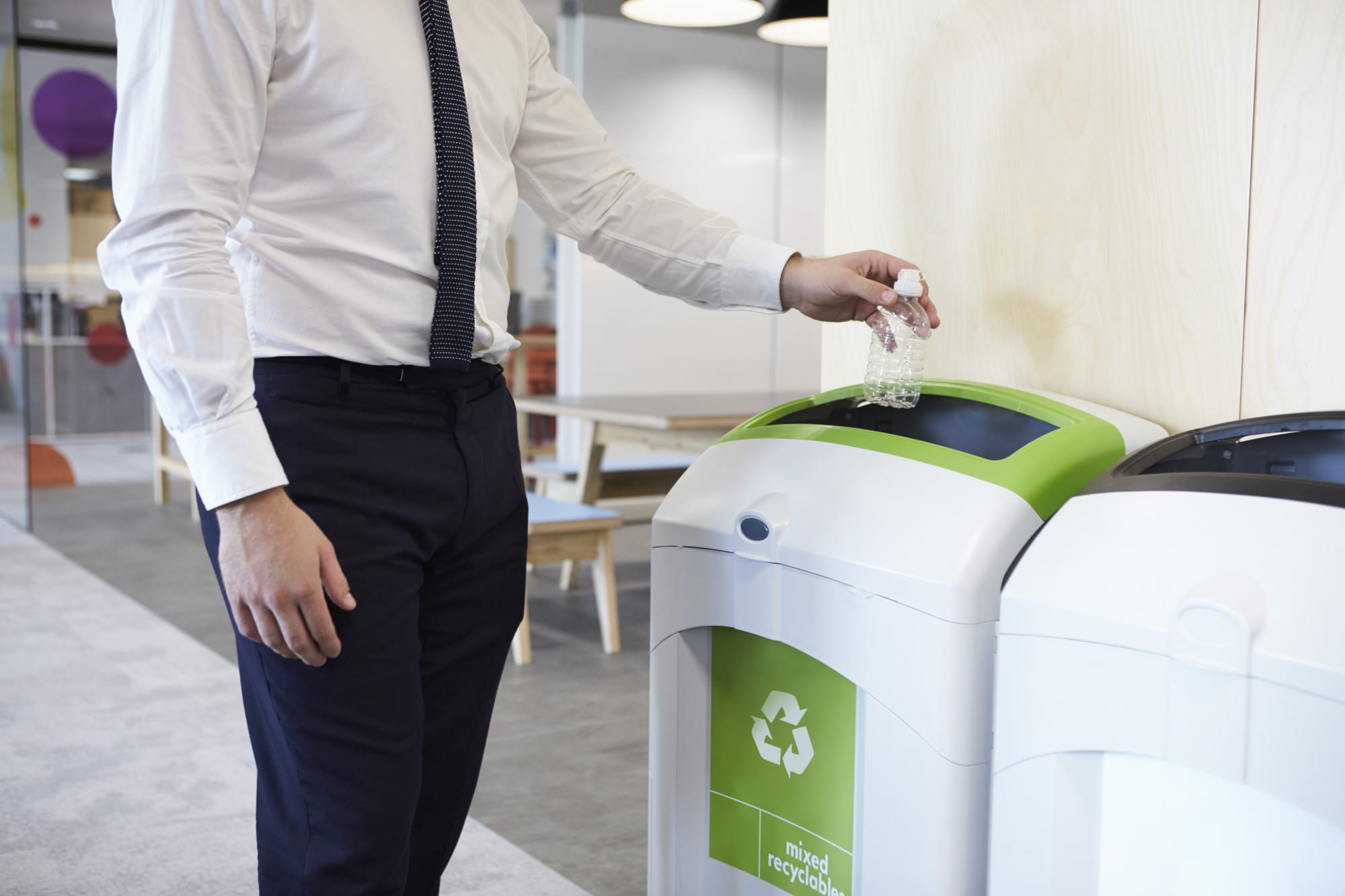Recycling can seem tricky, so it’s easy to get it wrong!
Did you know that recyclable plastics are made from two different types of resin, one of which is the so-called ‘post-consumer HDPE’ that is easier to recycle?
It’s easy to slip up or be completely uneducated regarding recycling. But didn’t you want to be the most enviable of your friends? It’s not too late.
Keep reading for a few common office recycling errors so that you can avoid them.
1. Not Cleaning Items
It is important to ensure the recycling container is free of food, drinks, and other substances. This prevents contamination of the waste stream and will ensure items are properly sorted and recycled.
To avoid not thoroughly cleaning items before recycling, it is important to take the time to sort items properly and to establish an office recycling policy for proper waste management. Additionally, keeping bins for recycling clearly marked and labeled can help ensure the items are disposed of correctly.
2. Improperly Sorting Materials
Improperly sorting materials is one of the most common office recycling errors. It may happen when recyclables such as cardboard, paper, and plastic are not sorted into the proper categories due to a lack of education or knowledge of what should go where.
To avoid this mistake, the office should provide clear visual markings for each bin, displaying the type of material that can be placed in that bin. Additionally, the office should provide signage explaining why proper sorting is important, and clearly outline what is acceptable or unacceptable for each container.
3. Putting Confidential Data in the Wrong Receptacle
Employees sometimes overlook the labels on recycling bins and accidentally place confidential documents in the wrong container, leading to a potential breach of information. To prevent this, have clearly marked trash and recycling receptacles and train employees on the differences between the two.
Finally, if dealing with large volumes of confidential materials, it is advisable to follow the office recycling policy and install security-controlled document shredders.
To help minimize the chances of confidential data being inappropriately recycled, visit Cjdecycling.com for professional help on office recycling.
4. Confusing Plastic Codes
Many plastic containers are stamped with a recycling code number ranging from 1-7. However, not all plastics can safely be recycled.
To avoid this mistake, it’s vital to know which codes are recyclable and which need to be thrown away. Plastics numbered 1-2 (PET or HDPE), and 5 (PP) are typically safe for office recycling. Plastics numbered 3-7 (PVC, LDPE, PS, etc.) are not.
5. Not Conducting Regular Waste Audits
Not conducting regular waste audits is one of the most common office recycling errors and can be detrimental to the amount of material being recycled.
To avoid this error, companies should regularly conduct waste audits that assess and track the number of recyclable materials being generated and ensure staff is adhering to relevant recycling policy.
6. Lack of Education
A common office recycling error that businesses make is a lack of education about what can be recycled. This is because many people are unaware of what items can be recycled and what items cannot.
To reduce the number of incorrect items that are recycled, businesses should also provide clear and accessible recycling education to employees.
Office Recycling Errors to Avoid
Recycling correctly may seem daunting, but it’s a worthwhile effort. Practicing proper recycling techniques, following guidelines, and taking advantage of recycling services are essential to avoid office recycling errors.
Found this interesting? Read the rest of our blog and learn more!







